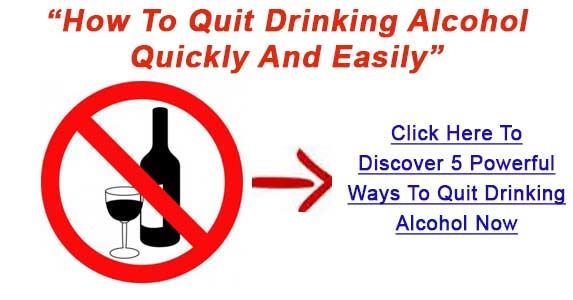Quit Drinking Beer On Your Own - Quick Methods To Quit Drinking Alcohol
For those who have other requirements there are many other self-help support groups for alcoholics besides AA. A specific need that should be addressed and supported is that of co-occurring disorders. The term co-occurring is used often to refer to when an individual is affected by both chemical dependency and an emotional disorder. Not only is the person affected by two different illnesses but both these illnesses could interact with one another. Identifying both disorders could be extremely difficult as the indicators of mental illness and substance abuse can be similar (quit drinking alcohol). By ignoring or simply not knowing that you are suffering from a psychological or emotional disorder you will have a more difficult time trying to stay sober. The majority of people with unknown mental disorders try to fix how they’re feeling with alcohol or drugs. Perhaps greatest tragedy is the damage that occurs to the individual’s self-esteem as they try and fail to stop their beer abuse. Because your ability to function and handle life’s difficulties depends on your health mentally and physically it is a upmost importance that you treat both concerns. Dual diagnosis programs could assist you recover from both your chemical dependency and your emotional or psychiatric illness by focusing on relapse prevention and improving quality of your life.
Recognize that you have a problem with liquor and need to stop. Understand that it will be a hard passage into sober living and toughen your resolve. Set a tangible date to stop drinking altogether and discontinue drinking when that day arrives. Create a card with your motivations to give up drinking written down on it and keep it in your purse or wallet. Let friends and family members and co-workers know that you’re trying to stop drinking. Be upfront about your new limits with others and let them know how they can assist you to be successful. Stay invested in other people and your community which will help you stay motivated and on recovery track (click here to discover how you can give up drinking). Take care of yourself and value your body and your life. Find a hotline number to call so when temptation hits you have someone to call. Prepare yourself for mental and physical difficulties you may face and realize that it will get easier with time.
If you are a woman who wants to quit drinking there are support groups specifically for you
Women for Sobriety is a non-profit secular addiction recovery group for women with alcohol problems or beer dependence. Jean Kirkpatrick developed WFS because women’s recovery in AA was found to be less successful than for men. WFS groups have grown in popularity and now there are more than 200 factions in world. Only women are allowed to attend the organization's meetings as groups focus specifically on women's issues. WFS is similar to AA in that it encourages meditation and spirituality but sobriety is not viewed as dependent on a Higher Power. WFS considers the fundamental problem of females with beer dependence is low self-esteem. WFS encourages positive thinking and discourages negative thinking to increase self-esteem of an alcoholic. Like cognitive behavioral therapy women in WFS learn to beware of negative thoughts as they arise. There are also elements that a woman's sense of definition and value is strongly tied to their relationships with others. 92 percent of WFS members believe that their state of mind is the most important factor in sustained sobriety.
If you want to quit consuming you need to learn about different approaches to treat alcoholism
You don’t have to settle for mainstream support groups as there are many others. There are groups that focus on self-liberation in tackling alcohol addiction such as Secular Organizations for Sobriety which is also known as SOS. SOS is similar to AA in that it is a network of independent meetings with a recovery method. The philosophy of SOS credits you for achieving and maintaining your own sobriety without relying on any Higher Power. There are more choices for secular support groups such as Self-Management and Recovery Training. By striving to become sober through self-reliance and empowerment SMART Recovery utilizes similar principles as SOS. This program is also based on principles of cognitive behavioral therapy also known as CBT. CBT is a form of psychotherapy that emphasizes the important role of thinking in how we feel and what we do. The benefit of how CBT works is that it focuses on how you can change and improve the way you think and act even if situation does not change (quit drinking beer on your own). Cognitive-behavioral therapists seek to learn what you want out of life and then assist you achieve those goals.


